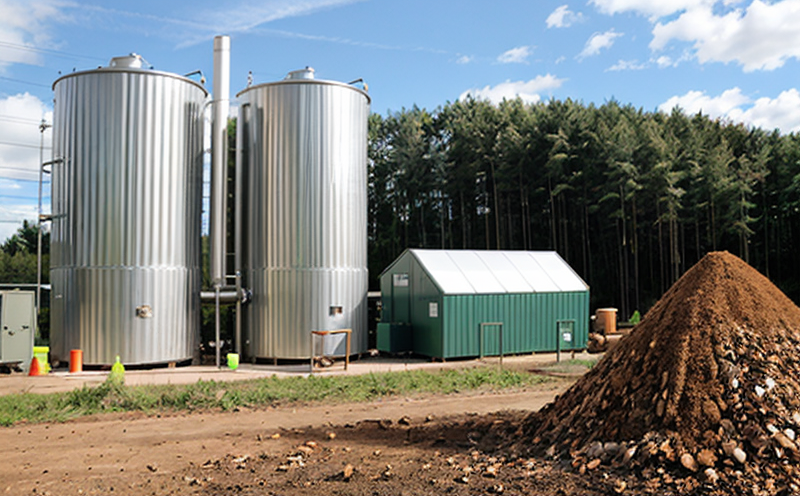ISO 1928 Determination of Calorific Value of Solid Waste and Biomass
The ISO 1928 standard is a vital tool in the waste management sector, particularly for those involved in the conversion of solid waste into energy. This method provides a standardized approach to determining the calorific value of solid waste materials and biomass samples. The calorific value is crucial as it helps in optimizing processes that convert these materials into energy sources such as electricity or heat.
The process outlined in ISO 1928 involves several key steps, each meticulously designed to ensure accurate results. Initially, the sample must be prepared carefully by drying and homogenizing it to represent a true average of the waste composition. The dried sample is then placed into a bomb calorimeter where it undergoes combustion under controlled conditions.
The combustion process releases heat energy that is captured by an internal water reservoir within the calorimeter. The increase in temperature of this water is measured and used to calculate the calorific value of the sample. This method ensures precise measurement, even for highly variable waste materials. It's important to note that the accuracy of these measurements can significantly impact the efficiency and cost-effectiveness of energy production processes.
The standard also specifies the types of samples that can be tested, including municipal solid waste (MSW), agricultural residues, wood chips, and other biomass materials. This broad applicability makes ISO 1928 a versatile tool in various industrial settings where waste-to-energy conversion is practiced.
Understanding the calorific value of waste and biomass through this standard is essential for optimizing energy recovery processes. For instance, it helps in selecting appropriate feedstocks that will yield the highest possible energy output. Additionally, knowing the calorific value aids in calculating the economic feasibility of different waste-to-energy projects.
The ISO 1928 method has been widely adopted across various sectors including municipal waste management, agricultural industries, and renewable energy companies. By adhering to this standard, organizations can ensure consistent quality control and compliance with international standards. This not only enhances operational efficiency but also contributes positively to environmental sustainability goals.
Moreover, the use of ISO 1928 fosters collaboration between different stakeholders involved in waste management and recycling initiatives. It provides a common language and set of procedures that can bridge gaps among researchers, regulators, and industry professionals working towards more sustainable practices.
| Applied Standards | Description |
|---|---|
| ISO 1928:2015 | Determination of calorific value of solid waste and biomass by bomb calorimeter method |
Applied Standards
| Applied Standards | Description |
|---|---|
| ISO 1928:2015 | Determination of calorific value of solid waste and biomass by bomb calorimeter method |
Benefits
- Ensures consistent quality control across different batches of waste materials.
- Facilitates accurate energy yield predictions, leading to more efficient conversion processes.
- Promotes compliance with international standards and regulatory requirements.
- Fosters collaboration among various stakeholders in the waste management sector.
Eurolab Advantages
At Eurolab, our expertise lies in providing comprehensive testing services that meet stringent international standards. For ISO 1928 determination of calorific value, we offer:
- Accurate and reliable results using state-of-the-art equipment.
- Detailed reports tailored to your specific needs with clear recommendations for optimization.
- A team of experienced professionals who stay updated on the latest developments in waste-to-energy technology.
We ensure that every step from sample preparation through analysis meets ISO 1928 requirements, giving you peace of mind knowing you are working with a trusted partner in this field.





